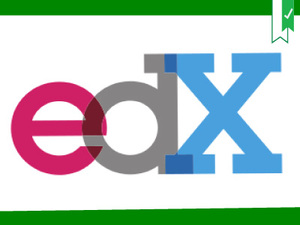 "
"
This spring, Notre Dame will launch four flagship online courses with edX.org, which portends a greater commitment to online learning from the university.
A nonprofit platform for online education, edX was founded by MIT and Harvard in 2012. It currently features 428 free courses from 36 consortium universities. The interactive Internet classes and massive open online courses (MOOCs) on edX are designed to offer and enrich education for all.
This development, however, does not mean that the public will suddenly have access to an entirely free Notre Dame curriculum.
“MOOCs and public engagement instruction are a benefit, but not a driver of our overall online learning strategy. The primary goal at the heart of our digital strategy is to enhance teaching and learning at Notre Dame, for our students and faculty,” says Elliot Visconsi, associate professor of English and law, as well as the university’s inaugural Chief Academic Digital Officer.
The online edX courses are not full “courses,” in the traditional sense, but rather modules designed to engage learners in a shorter time period through diverse instructive methods. Think of edX as an interactive textbook that can supplement what is done in a typical classroom.
“If I would normally begin my class with a 15-minute lecture on a subject that likely will not change from year to year, for example, the history of theater in Shakespeare’s age, I can prepare and deliver that on edX as a set of interactive video segments with a light assessment attached. Then when I get to class, students are ready to go, and we can spend more in-class time on active learning, dialogue, argument and exploring the nuances of a topic,” Visconsi says.
Although bolstering the in-class experience is paramount for the administration, edX could produce the side effect of extending Notre Dame’s brand and reach.
Notre Dame has the opportunity to fill an interesting niche of online Catholic teaching. Notre Dame will be offering the course Jesus in Scripture and Tradition as part of its edX launch. The only other Catholic university in the edX consortium is Georgetown, which does not have any theology courses archived or upcoming.
“For our edX launch, it was important to have theology offered coming out of the gate. Two of our most distinguished theology professors will be teaching a shorter version of the Foundations [of Theology] course, and we hope to use these materials on campus in multiple ways,” Visconsi says.
It remains to be seen how both students and the public will respond to these online offerings, but the administrative initiative is certainly present and visible. The Office of Digital Learning, which Visconsi heads, is working diligently with faculty, departments and the colleges to continue to develop courseware --— specifically for intro-level classes, which touch the largest number of students.
Notre Dame is certainly not the first university to embrace non-traditional learning, but this commitment to edX could be indicative of a more significant push towards for-credit online learning.
In May 2013, the university announced that it would be one of seven academic institutions launching for-credit online summer classes on Semester Online. This initial foray into bringing the residential model to the online space was invaluable for the digital learning developers, and helped solidify a vision of class structure and future planning.
“Our plan with full online courses is to have a homework phase, then asynchronous learning — recorded lectures, courseware, quizzes similar to edX — that happens at your own pace within a set window of time and finally and crucially more traditional synchronous learning through face-to-face multiparty video conferencing, discussions and seminars,” Visconsi says.
The university’s possible expansion of for-credit online offerings would certainly have a profound effect on students’ scheduling flexibility. If students could take full courses with Notre Dame faculty online over the summer — potentially to complete a University or major requirement — it could make it easier to study abroad, pick up a second major or spend more time on-campus learning in an engaging, seminar-style setting.
In addition to the flexibility online courses could provide, digital learning gives the university a unique opportunity to provide resources for continued and higher learning once students leave their undergraduate years behind.
“We may develop a small number of hybrid online-professional graduate degrees to allow working professionals the opportunity to study with our world-class faculty while remaining in their positions across the country,” Visconsi says.
The long-term goals of the administration are wide-reaching. Notre Dame’s online platform could drastically change the way students approach undergraduate education, while also touching graduate learning and the connection of the school to the general public.
According to Visconsi, this commitment to edX and online education is not foreshadowing any sort of shift from the residential model or an enrollment explosion of “virtual students.” Instead, the university seems to be leveraging its online assets and faculty expertise to improve the entire schooling experience for its students.
The Office of Digital Learning is working hard to turn Notre Dame into a pioneer in creating effective virtual learning experiences. Looking back, perhaps, edX implementation will be seen as a stepping stone towards an online education revolution at Notre Dame.